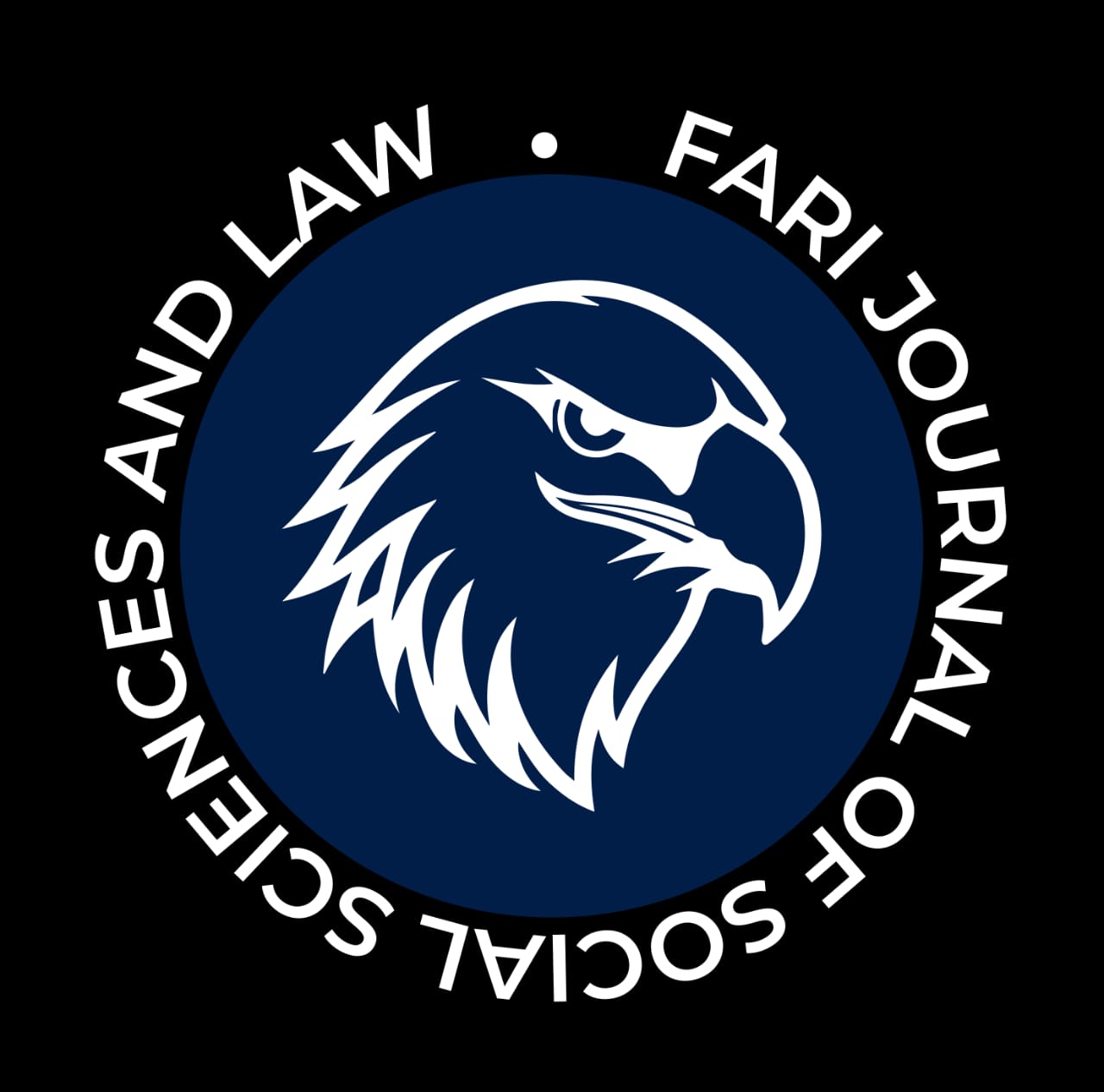
Journal Name: Fari Journal of Social Sciences and Law
Short Name: FJSSL
ISSN(Print) : 3079-2649
ISSN (Online) : 3079-2657
Frequency : Quarterly
Nature: Print and Online
Submission: Via OJS System
Languages of Publication: English
Name of Publisher: FARHAN ABBASI RESEARCH INSTITUTE (SMC-Private) Limited
Address of Publisher: Sector N , DHA Phase 1 Lahore, Punjab- Pakistan.
Whatsapp number: 0092-3454055044
Email: editor.fjgass@fari.org.pk









